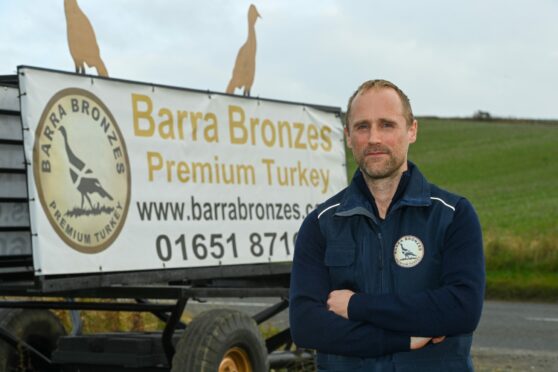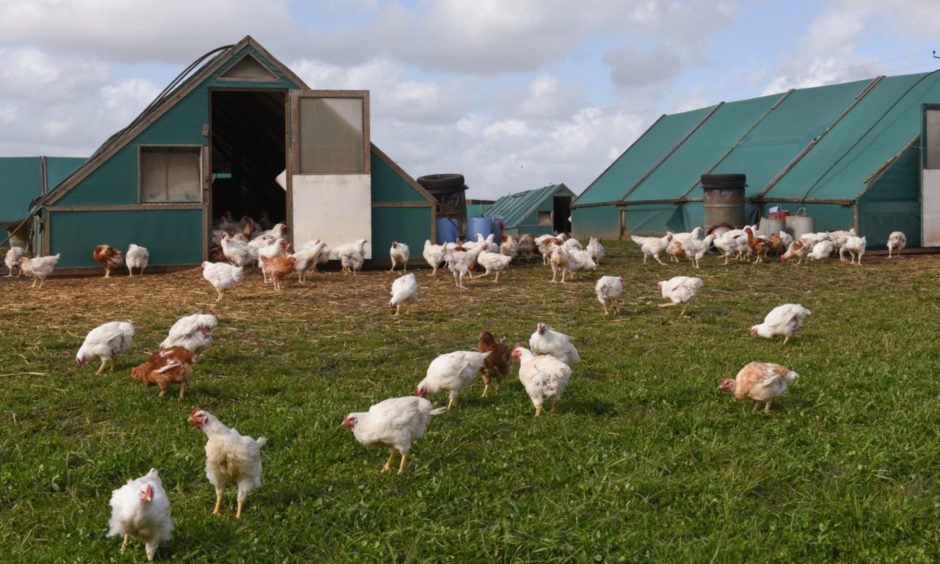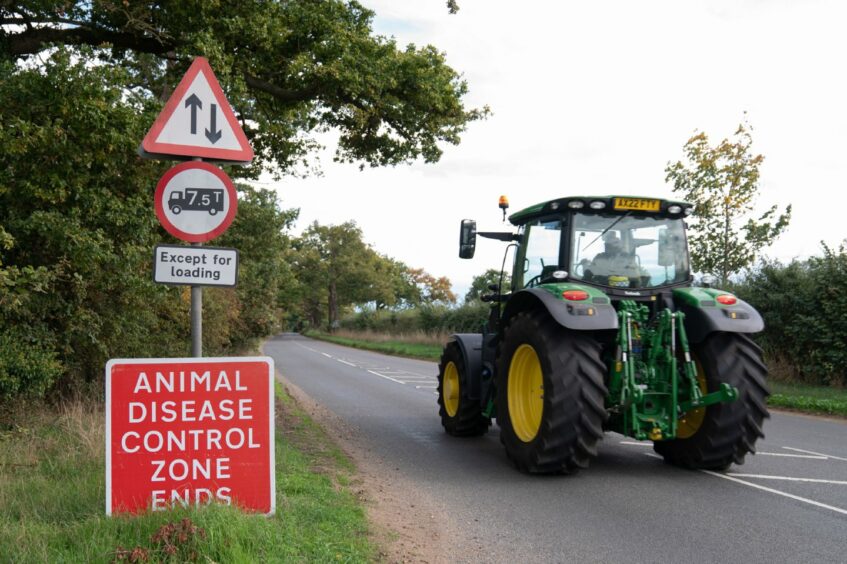Turkey farmers are warning there could shortages this Christmas as as a result of the ongoing bird flu crisis.
Concern is growing among poultry farmers as more and more cases of avian flu are confirmed across the country.
Over the weekend, a case was detected at a poultry farm near Huntly and today NatureScot said there have been more confirmed in Orkney and the Western Isles.
The UK’s chief veterinary officer has today imposed mandatory housing measures for all poultry and captive birds in England. From midnight on Monday, all such birds must be kept inside and strict biosecurity measures followed to protect against the spread of the disease.
Craig Michie, of Barra Bronzes, near Inverurie, said the emerging situation was very worrying and the cost of the birds contracting the virus could be “catastrophic”.
For the whole season, he has joined many farmers in putting in place safety measures to try and mitigate risks to his birds.
Things like washing vehicles coming in, disposable clothing, minimising people going in and out, are just some of the precautions being taken.
‘Everyday we’re nervous’
“Obviously we’re concerned about it,” Mr Michie said.
“We’ve heightened up our biosecurity even more now. It’s costly and it’s just taken lots of time but the risks you know, if that happens it is just devastating for a business.
“Everything comes into biosecurity, and there’s only so much you can do and that’s it.
“There’s no insurance or anything for it so it’s pretty catastrophic.
“Just everyday we’re just nervous to see that everyone’s OK
“So it’s just really worrying, and then you feel for all the people that have had it, it’s just terrible.”
Due to the higher risks and costs, he said many farmers across the UK are producing fewer turkeys this year.
The 40-year-old said: “There’s a lot less turkeys in the ground now. A lot of producers have only grown half of what they’d usually grow, just to mitigate the risks, and the costs they’ve got going out. So there is a big shortage now.
“We’re seeing butchers from all over the country, contacting us just panicking that they can’t get birds now.”
The news of this spread in poultry farms comes a year after avian influenza was detected in a barnacle geese population, causing cases among wild birds to soar.
While impacts on wild birds and seabirds have dropped recently, NatureScot said cases are now rising in domestic poultry.
Cases are being recorded in the Western Isles, Orkney and Aberdeenshire.
A protection zone was declared around Logie Farm, near Huntly, yesterday.
Another protection zone was placed in Orkney, near Kirkwall, later that night.
‘We expect cases to rise’
Eileen Stuart from NatureScot is heading up a surveillance network being used to monitor the threat of the virus.
The latest strain, H5N1, is said to be “particularly virulent”.
Speaking on BBC’s Good Morning Scotland today, she said: “Like most viruses, it adapts very quickly and you get lots of strains and changing strains.
“It seems that the particularly strain that is around now which is HPN5, is particularly virulent and particularly fatal to seabirds and wild birds.
“But it impacts on different birds in different ways so there’s lots still unknown unfortunately which is part of the difficulty.”
While she said dropped impacts on seabirds was “encouraging”, poultry is now being affected with “massive outbreaks” in parts of England and growing ones in Scotland.
“What we’re seeing now is the domestic poultry impacts rising again,” Ms Stuart added.
“In Scotland at the moment we’ve only got three places. They’ve been found in poultry units in the Western Isles, in Orkney and now over in Aberdeenshire.
“But we expect it to rise and that’s been the pattern over the last few winters, that it rises over the winter in poultry and then declines again in the spring.”




Conversation